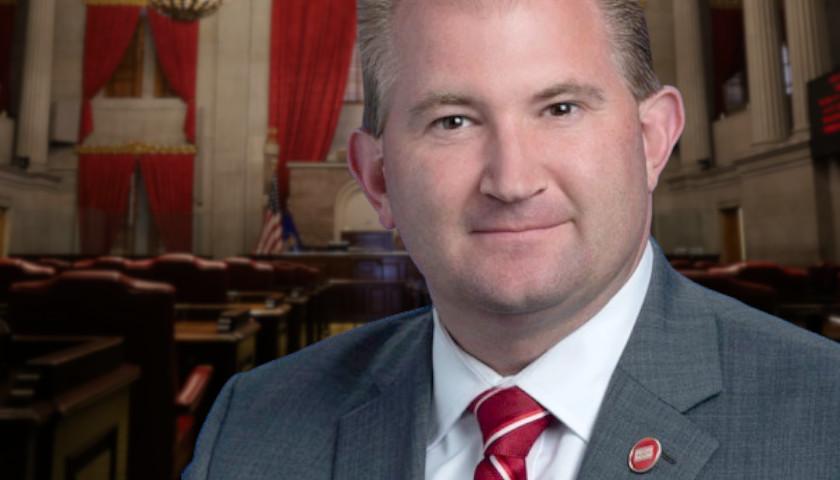Despite actions at the federal level and dozens of states, legislation to reform civil asset forfeiture in Tennessee is continually received with resistance.
Civil asset forfeiture is a tool whereby law enforcement seizes assets such as money and property that was obtained illegally by criminals. The goal of law enforcement is to defund the criminals’ enterprise and assist with the funding of law enforcement’s future efforts.
The process, though, has come to be referred to as “policing for profit,” because assets have been seized that weren’t directly involved in the commission of a crime, a criminal conviction is not required for the seizure and the rightful owner has to fight in court to win back their own property.
The court battle to retrieve one’s property is one of a civil nature, not criminal. As such, the property’s claimant is not entitled to an attorney if they cannot afford one, as a defendant would be so entitled in a criminal case.
In a 2015 Tennessee case, a woman and her mother drove to the Rutherford County Adult Detention Center with $12,000 in cash she claimed was raised by family and community members for the purpose of posting bond to secure the release of her brother. The brother had been arrested by the Lavergne Police Department on a felony drug charge.
The Rutherford County Sheriff’s Office became suspicious of the amount of cash and used a canine that “indicated” on the woman’s box containing the $12,000 in cash as well as her vehicle. A detective seized the $12,000 plus another $1,000 in large bills contained in the woman’s purse.
According to procedure called out in Tennessee law, there is a prescribed paperwork process that ensues from an asset seizure.
The family, as the claimant, hired an attorney to file a motion to dismiss, citing “multiple statutory violations,” including issues with the paperwork. As relief, the claimant requested the dismissal of the forfeiture proceeding, the return of the cash, and an award of attorney’s fees.
The administrative law judge did grant the claimant’s motion to dismiss and ordered the return of the cash, but denied the attorney’s fees.
On appeal, the Davidson County chancery court found that the petitioner was entitled to the recovery of attorney’s fees. The attorney’s fees amounted to $19,600.20, but some adjustments were made by the chancery court because a portion of the fee was considered to be excessive and there were two math errors. In the end, the court found that $15,092.70 would be awarded for attorney’s fees, which was payable by the Tennessee Department of Safety and Homeland Security.
While the case is currently under appeal by both parties, Tennessee law has changed so that these types of attorney’s fees could not be awarded even if a court found it to be justified.
Through legislation passed in 2018 under Pub. Ch. 772, the attorney’s fees that an administrative law judge can award is now limited to the lesser of the following:
– Twenty-five percent (25%) of the National Automobile Dealers Association rough trade-in value of any motor vehicle seized and returned;
– Twenty-five percent (25%) of the value of any currency seized and returned;
– Twenty-five percent (25%) of the reasonable replacement value of any miscellaneous personal property seized and returned;
– Three thousand dollars ($3,000); or
– If multiple types of property are returned, a combination of the amounts provided that the total amount of attorney’s fees awarded shall not exceed three thousand dollars ($3,000).
The 2018 legislation was a step backward for those whose property was seized within the state of Tennessee when it comes to recouping attorney’s fees incurred in fighting for the return of one’s own property.
Using the Rutherford County case as an example, instead of the $15,092.70 that was awarded for attorney’s fees, under the 2018 law the judge would have been limited to awarding $3,000 – or less than 20 percent of what was actually awarded.
According to a March 15, 2019, LandLinemag.com article, the official publication of the Owner-Operator Independent Drivers Association, the interest in reforming civil asset forfeiture has grown.
The Association’s on-line magazine article cites the recent and unanimous U.S. Supreme Court ruling that the value of property taken by a state through forfeiture cannot be excessive. How “excessive” is to be defined was left by the Supreme Court for the lower courts to determine.
The article goes on to list 10 states under the category of “recent state action of civil asset forfeiture,” which reviewed legislative developments that have occurred in recent weeks. It also lists 22 states with older actions taken on civil asset forfeiture. The state of Tennessee does not appear on either list of a total of 32 states.
Building Blocks For Liberty, a “non-profit educational organization dedicated to the preservation of the U.S. Constitution by teaching others the importance of this historical document that governs our nation,” according to its website, reported that “Tennessee Bills Would Effectively End Federal Asset Forfeiture Program in the State.”
The bills Building Blocks For Liberty references are HB 0340 and SB 0326 sponsored by state Representative Martin Daniel (R-Knoxville) and state Senator Frank Niceley (R-Strawberry Plains), respectively.
These bills were previously covered by The Tennessee Star as the House version was set to be heard in subcommittee and when Nashville Metro Council issued a Resolution opposing civil asset forfeiture without a criminal conviction.
The Nashville Metro Council Resolution included a finding from the February 2018 58-page report by the Tennessee Advisory Committee to the U.S. Commission on Civil Rights that Tennessee’s current civil asset forfeiture law, “raises significant civil rights concerns regarding the fair and equitable administration of justice.”
Additionally, the Nashville Metro Council Resolution talked about the hardship of Tennessee’s civil asset forfeiture laws on the victim, stating that “individuals whose property has been wrongfully seized by the government might not have the time, expertise, or resources to reacquire their property.”
The Tennessee Advisory Committee to the U.S. Commission on Civil Rights was more specific about the impact of Tennessee’s civil asset forfeiture laws, finding that in practice, “Tennessee’s civil forfeiture law raises important concerns about the disparate impact that forfeitures can have on low-income individuals and communities of color.”
The Building Blocks For Liberty report cites bills introduced in 2017 by Representative Daniel that featured “more robust provisions that would have required a conviction before proceeding with forfeiture.” The organization’s report goes on to say that “the Republican-controlled legislature killed” the legislation, “under intense law enforcement opposition.”
As they did in 2017, law enforcement and the Tennessee Department of Safety have made it clear that they will again be actively lobbying against the current bills, despite the fact that the reforms proposed in the current legislation are more modest than those considered in 2017.
The lobbying against the reform comes, despite the fact that the platforms of the Republican, Democratic, Libertarian, and Green parties each call for the reform of civil asset forfeiture laws and a recent poll shows 84 percent of Americans oppose the practice of taking assets prior to or without a conviction for a crime, both points being cited in the Metro Nashville Council Resolution.
Additionally, there is support for the House version of the bill which now has 36 co-sponsors in addition to the prime sponsor, Representative Daniel. And, that support is bi-partisan, with 15 of the 26 House Democrats having signed on to the bill.
The first stop for the House bill is the Civil Justice Subcommittee, where the only member of the seven-member subcommittee to have signed on to the bill is the sponsor.
Interestingly, other than the House sponsor Daniel, none of the 36 co-sponsors of the bill list their occupation on the Tennessee General Assembly website as being an attorney.
One member of the Civil Justice Subcommittee not signed on to the bill is Nashville attorney Representative Bill Beck (D-Nashville), whose wife Pam is the Director of Criminal Justice Information Systems Division at TBI, “Tennessee’s lead law enforcement agency.”
Members of the House Civil Justice Subcommittee that are scheduled to vote on HB 0340 Tuesday, March 20 are: Chairman Mike Carter (R-Ooltewah), Representatives Bill Beck (D-Nashville), Michael Curcio (R-Dickson), Johnny Garrett (R-Goodlettsville), Dan Howell (R-Georgetown) and Joe Towns, Jr. (D-Memphis).
Current House co-sponsors on HB 0340 are: Rush Bricken (R-Tullahoma), David Byrd (R-Waynesboro), Kent Calfee (R-Kingston), Scott Cepicky (R-Culleoka), Jesse Chism (D-Memphis), Barbara Cooper (D-Memphis), John Crawford (R-Kingsport), John DeBerry (D-Memphis), Vincent Dixie (D-Nashville), Bill Dunn (R-Knoxville), Rick Eldridge (R-Morristown), Jeremy Faison (R-Cosby), Yusuf Hakeem (D-Chattanooga), Mark Hall (R-Cleveland), G. A. Hardaway (D-Memphis), Matthew Hill (R-Jonesborough), Timothy Hill (R-Blountville), Jason Hodges (D-Clarksville), Andy Holt (R-Dresden), Bud Hulsey (R-Kingsport), Darren Jernigan (D-Nashville), Doc Kumar (R-Springfield), Justin Lafferty (R-Knoxville), London Lamar (D-Memphis), Harold Love (D-Nashville), Larry Miller (D-Memphis), Antonio Parkinson (D-Memphis), Jason Potts (D-Nashville), Tim Rudd (R-Murfreesboro), Iris Rudder (R-Winchester), Jerry Sexton (R-Bean Station), Rick Staples (D-Knoxville), Bryan Terry (R-Murfreesboro), Dwayne Thompson (D-Cordova), Chris Todd (R-Madison County), and Dave Wright (R-Corryton).
—
Laura Baigert is a senior reporter at The Tennessee Star.






All of these seizures are under the guise of the “war of drugs”. Well, we’ve been fighting this “war” since Richard Nixon first coined the phrase “war on drugs” in 1970! Hmmm, 49 years later, we’re still fighting the same war? Either the tactics are wrong, or, the people “fighting” the war really don’t want to win. Maybe we need to change one or the other, or maybe both!